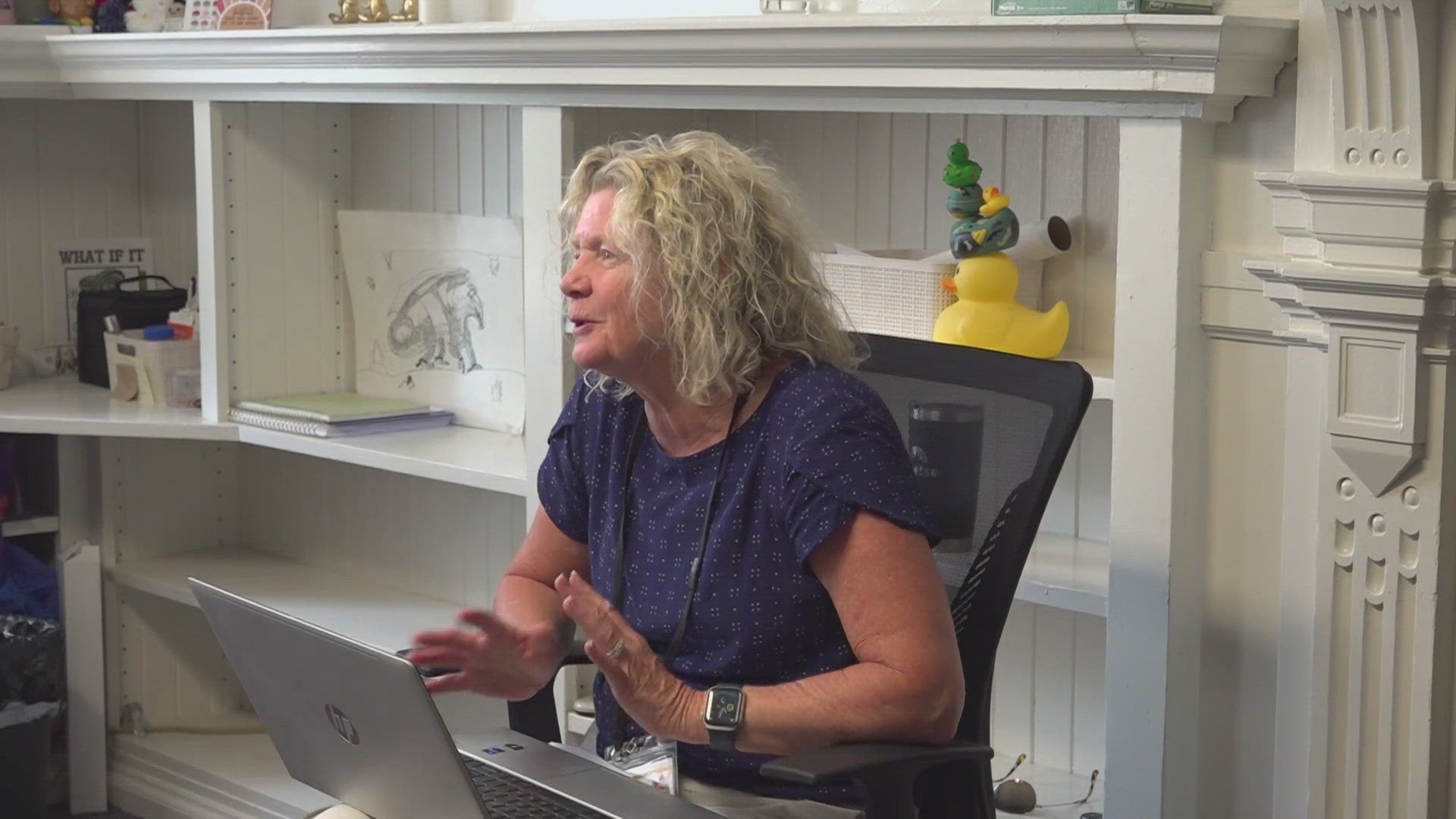MAINE, USA — According to a federal report by the Department of Justice, Maine is lacking in community-based programs that address mental health problems in youth.
In response to that report, the behavioral health nonprofit Sweetser launched the Child ACT Program earlier this year. It's the only one of its kind in the state right now and is working to fill gaps in care for people ages 5 to 20.
Wendy Anders is the senior director of community based services at Sweetser. She says the Child ACT Program has been a missing component of care for the last decade.
"It was a service that the state of Maine did have that thrived," Anders said. "But then, due to some budget cuts, had ended."
ACT stands for "Assertive Community Support."
The program consists of an interdisciplinary team including a clinician, case manager, family support specialist, and nurse practitioner. This team is able to take the treatment to the client in their own home or another comfortable setting.
Taylor Paquis is the clinical team lead. She supports this model of care because it's not just the child putting in work.
"The client or child could be doing a lot of work, and when they are discharged, they're going back into an environment where maybe things haven't really changed, and so I think it's so important for the family to be doing work alongside of their children to make that change and to be able to sustain their progress," Paquis said.
As for program requirements, Anders says it's for youth who have tried less invasive forms of treatments and require extra levels of care.
"Like therapy, case management, the ACT model is a home and community treatment model with a smaller interdisciplinary team," Anders said. "They tend to be in and out of hospitals or in and out of emergency rooms. And you know, a lot of crisis calls that they're that they're just not able to be safely managed at home and they're not really residential-level care."
Anders says the ACT team meets daily and at minimum three times a week with families.
"It must include at least one clinical contact during that week and then over the course of the month, at least one nurse practitioner contact," Anders said.
Now, the ACT team doesn't go all at once for client visits. It could be one team member, two, or even three depending on the client's needs.
However, regardless of the time of day, Paquin and the team are on call 24/7.
"We always have someone available for families to call for in the moment crisis support," Paquin said. "I think that's been pretty helpful for our clients and families already too, because we're getting on the phone with them or coaching parents or coaching clients."
Thirteen people have enrolled in the Child ACT Program since March.
There is currently a waitlist, but Anders says as the team continues to grow, they will eventually be able to see as many as 50 clients.
Right now, the program offers services to families within a 25-mile radius of Saco, but Sweetser hopes to open more programs like this across the state.

